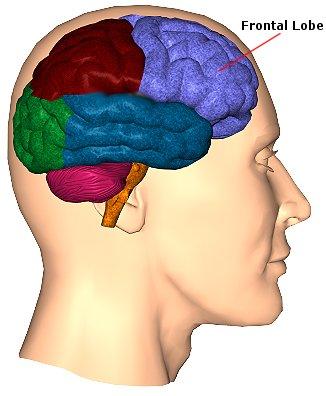
by Dr. K. Dillard (http://www.viewzone2.com/sociopath.html)
Another Mass Murderer: The Criminology of "What makes them tick?"
The December 2012 shootings at Newtown, Connecticut, of 20 pre-teen children and six adults -- including the shooter's own mother -- have had repercussions all over the globe. People are horrified that anyone could do such things. They wonder why it happened. Is it a symptom of something? Can we prevent it from happening to our family?

Twenty year old Adam Lanza. who apparently killed himself after the shootings, is described as a nice, quiet, intelligent kid who showed no apparent motive for his rage and deadly violence. The same was true of Cho Seung who massacred students at Virginia Tech. We are reminded of other senseless massacres and of insane killers like Jeffrey Dahmer, Charles Manson. How can they do these things? What goes on in their mind? How are they so different from the rest of us?

 Charles Manson & Jeffrey Dahmer, mass murderers with apparently no conscience.
Charles Manson & Jeffrey Dahmer, mass murderers with apparently no conscience.Psychiatrists and those who study criminology, tell us that these people are different from the rest of us. They are called sociopaths, or antisocial personalities. Eventually, when they act on their violent impulses, they are full-fledged psychopaths.
The American Psychiatric Association defines a sociopath as follows:
Antisocial personality disorder is characterized by a lack of regard for the moral or legal standards in the local culture. There is a marked inability to get along with others or abide by societal rules. Individuals with this disorder are sometimes called psychopaths or sociopaths.
| Diagnostic Criteria (DSM-IV)
1. Since the age of fifteen there has been a disregard for and violation of the right's of others, those right's considered normal by the local culture, as indicated by at least three of the following:
4. Symptoms not due to another mental disorder. |
This definition doesn't quite tell the whole story, though. Sociopaths are often disguised as ordinary, even likable people; but a closer look at their lives shows that they often cause heartbreak and catastrophe to anyone who makes the fatal error of getting close to them.
People with this disorder appear to be charming at times, and make relationships, but to them, these are relationships in name only. They are ended whenever necessary or when it suits them, and the relationships are without depth or meaning, including marriages. They seem to have an innate ability to find the weakness in people, and are ready to use these weaknesses to their own ends through deceit, manipulation, or intimidation, and gain pleasure from doing so.
In short, sociopaths are like a person who lives inside a room full of mirrors. They are motivated by their own needs and feelings and only interact with other individuals as a means to gaining something that they feel they need. They have no regard for the other person's feelings or consequences beyond their own personal goals.
Romantically, they can be charming, give flattering comments and do little favors and give apparent undivided attention -- all the activities that we usually associate with someone who is kind and loving. But these are just learned behavior -- a means to an end -- and disguise the fact that the sociopath has no feeling of empathy or love, as most people know it.
| Psychopathy checklist:
The 30 characteristics of the manipulator (psychopath, in French "perverse narcissist") from the bookLes manipulateurs sont parmi nous by Isabelle Nazare Aga.
In order for a person to be a psychopath, at least 14 items from this list must be present as permanent traits. For example item 18: almost everyone has told a lie at some points in their life, but item 18 only applies if a person uses lies as a habitual strategy. [] 1 Burdens others with guilt while appealing to family ties, friendship, professional ethics; [] 2 evades responsibilities or pushes them onto others; [] 3 remains vague in the communication of his/her claims, needs, feelings and opinions; [] 4 often gives vague answers; [] 5 changes opinion, behaviour and feelings depending on people and situations; [] 6 makes use of logical arguments to camouflage claims; [] 7 wants to make others believe that they have to be perfect, that they can never change their mind, that they have to know everything and have to respond immediately to claims and questions; [] 8 disputes the qualities, the ability and the personality of others; criticises without giving that impression, despises and condemns; [] 9 lets others convey his/her messages; [] 10 creates havoc (fights), creates distrust, divides to be better able to rule; [] 11 positions himself/herself as a victim to elicit compassion; [] 12 ignores or does not honour requests even if he/she declares that they will be taken care of; [] 13 misuses ethical principles of others to serve own interests; [] 14 threatens in underhanded ways or commits open chantage (blackmail); [] 15 suddenly changes the subject in the course of a conversation; [] 16 avoids or flees relationships and togetherness; [] 17 targets the ignorance of others and creates an impression of superiority; [] 18 lies; [] 19 tells lies to find out the truth [] 20 is egocentric; [] 21 can be jealous; [] 22 does not bear criticism and negates evidence; [] 23 does not care for the rights, opinions and wishes of others; [] 24 often uses the very last moment to give commands to others or to instigate them to act; [] 25 his/her words seem to be logical or coherent while the attitude and behaviour give evidence of the opposite; [] 26 he/she exerts himself/herself in making compliments in order to gain your sympathy, gives presents, becomes suddenly very caring for you; [] 27 gives you an uneasy, unfree feeling; [] 28 extremely expert in accomplishing own goals, but at the expense of others; [] 29 pressures us to do things that we would not do of our own accord; [] 30 is the subject of conversations all the time, even if he/she is not present. It is entirely possible that if you are not intimately involved with a psychopath and/or are not the direct victim, that you have not noticed very little of the above signs. These people can be experts at projecting a likeable public image. It is very, very important, if you are a victim of a psychopath, to get your experience validated. It can take a lot of time and difficulty to recover from the damage done by a psychopath. Often the people near you will not believe that this "nice person" (the "charming" mask) has done all these horrible things to you. It is necessary that our society becomes aware of what psychopathy is, how these people inflict damage and how their attempts can be made unsuccessful. Thanks to J. Storms |
Taken to the extreme, a sociopath is capable of murder, rape and violence. They can beat up an old woman, abuse a child or kill students in a classroom with calm, calculating precision. They simply do not feel the sense of right or wrong, or compassion. To the sociopath, these concepts are intellectual -- not emotional.
Psychopathic killers, however, are not mad, according to accepted legal and psychiatric standards. Their acts result not from a deranged mind but from a cold, calculating rationality combined with a chilling inability to treat others as thinking, feeling human beings. Such morally incomprehensible behavior, exhibited by a seemingly normal person, leaves us feeling bewildered and helpless.So how do people get this way?
-- Dr. Robert D. Hare
Without Conscience: The Disturbing World of the Psychopaths Among Us
 The causes of this sociopathic disorder have been narrowed to several factors through research. One of the primary causes of sociopathic behavior is believed to be neurological abnormalities mainly in the frontal lobe [ picture left] of the brain.
The causes of this sociopathic disorder have been narrowed to several factors through research. One of the primary causes of sociopathic behavior is believed to be neurological abnormalities mainly in the frontal lobe [ picture left] of the brain.This area of the brain is responsible for "self-control, planning, judgment, the balance of individual versus social needs, and many other essential functions underlying effective social intercourse".
This area is also related to fear conditioning. The abnormal anatomy or chemical activity within this area of the brain may be caused by abnormal growth (possibly genetic), brain disease, or injury. This theory has been supported by much research using positron emission tomography (PET) which visually shows the metabolic activity of neurons within the brain.
| Theory of Mind
Theory of mind is the ability to attribute mental states -- beliefs, intents, desires, pretending, knowledge, etc. -- to oneself and others and to understand that others have beliefs, desires, and intentions that are different from one's own. Deficits occur in people with autism spectrum disorders, schizophrenia, attention deficit hyperactivity disorder, as well as neurotoxicity due to alcohol abuse.
Theory of mind is a theory insofar as the mind is not directly observable. The presumption that others have a mind is termed a theory of mind because each human can only intuit the existence of his or her own mind through introspection, and no one has direct access to the mind of another. It is typically assumed that others have minds by analogy with one's own, and based on the reciprocal nature of social interaction, as observed in joint attention, the functional use of language, and understanding of others' emotions and actions. Having a theory of mind allows one to attribute thoughts, desires, and intentions to others, to predict or explain their actions, and to posit their intentions. As originally defined, it enables one to understand that mental states can be the cause of -- and thus be used to explain and predict -- others' behavior. Being able to attribute mental states to others and understanding them as causes of behavior implies, in part, that one must be able to conceive of the mind as a "generator of representations". If a person does not have a complete theory of mind it may be a sign of cognitive or developmental impairment. --Wikipedia |
A second factor believed to be partially responsible for the sociopathic disorder in some cases is the primary socialization of individuals within dysfunctional environments, such as abusive, poorly educated, or poverty stricken homes.
For years, this was thought to be the primary cause of sociopathy. But as knowledge has increased in the area of neuroscience, it has been realized that this is possibly only a secondary cause. Therefore, it can be said that the type of brain the sociopath was born with and/or the environment in which it was nourished forms the sociopath (Andreasen, 1984).
But this conclusion is not without controversy. Brain growth and changes can occur in the developing human because of environmental and social factors. The fact that abnormal physical changes have been found in the brains of sociopaths does not mean that they were born this way. Things like not having a father during pre-adolescence or of being raised by non-loving parents or foster parents can cause a re-organization of brain functions and structural changes that are evident in adulthood.
The lack of loving parents has been shown to have sociopathic consequences in primate studies. Further, these characteristics appear to be transmitted from one generation to another, as sociopaths lack the capacity to love their own offspring.
"Morality" has a special place in the brain
Stimulating various areas of the brain by way of strong magnetic coils has been the cutting edge of both neurology and psychology. The strong magnetic field is delivered in bursts of energy that have the effect of disrupting the function of that part of the brain temporarily.Called Transcranial Magnetic Stimulation, the technique has been used on healthy subjects to assess the effects on a broad range of human behaviors and thought processes. Most recently, a group of subjects was simulated with TMS to their right temporo-parital junction [see above] for a half hour, then asked to take a quiz. Another group was given short bursts (500 milliseconds) just before taking a quiz and a third group received no TMS and just took the quiz.
The quiz consisted of stories and vignettes where the main characters was making a questionable moral decision. The story always ended well but the quiz focused on the subject's judgement of the main character. For an example, a man knows a bridge is unsafe and dangerous, yet he encourages his girlfriend to cross it. She crosses without harm. When asked to judge the morality of the man, those subjects that received the TMS to their right temporo-parietal junction saw nothing wrong in his decision. "After all, she got across unharmed." In another test, subjects were shown a film in which the main character, working in a chemistry laboratory, is asked to put some sugar in a co-worker's coffee. The main character gets the "sugar" from a glass vile obviously marked "POISON" and stirs it in his froend's coffee. The co-worker drinks the coffee and is apparently unharmed. Again, normal subjects found the act morally wrong, while TMS subjects saw no problem in the behavior. "He lived, so no problem." To those with TMS it was the outcome that determined the morality of the acts. In other words, with the right temporo-parietal junction disrupted, the end justifies the means. Nature Neuroscience, June 26, 2010 |
An estimated 3% of all adult males have this sociopathic disorder. (The antisocial personality disorder is uncommon among women.) Only a small fraction of this percentage actually develop into violent criminals. Most sociopathic individuals are able to control their disorder within the boundaries of social tolerability.
They are considered only 'socially obnoxious' or hateful personalities, and every one of us knows of someone who fits the description. Corrupt and callous politicians, social or career fast climbers, authoritarian leaders, abusing and aggressive persons, etc., are among them.
 Most extreme sociopaths end up, at some time, in the prison system.
Most extreme sociopaths end up, at some time, in the prison system.More easily recognized and studied are the sociopathic individuals with histories of violent criminal behavior. As much as 15-25% of society's inmate population show many traits of this disorder. It is these incarcerated individuals as well as individuals in mental institutions on which most of the research on antisocial personality disorder is based.
The sociopath could be the intelligent and very successful businessman that goes home each night and abuses his family. He could be the temperamental man that visits the bar regularly and who often gets into brawls.
The study of criminology and criminal justice has provided numerous breakthroughs on the minds of criminals, as well as, constructed theories on potential steps to prevent future harm. A degree in criminology will help you understand the motives of a sociopath but a masters in criminal justice will help you study the methods of preventing crime.
Is there a cure for sociopathy?
Sadly, no. Because there is no cure for adult sociopathy, the only useful option is prevention. Child psychiatrist Jack Westman estimates that each typical sociopath will cost society $3 million over the course of his lifetime, yet society does virtually nothing to address this condition. Further, as we develop more technologies like television the internet and video games, sociopaths become empowered to develop their anti-social behaviors without the personal contact that contributes to healthy socialization.
 In the case of the Virginia Tech shooter, Cho Seung, we see how clearly the medical and mental health system failed to handle this blatant example of sociopathic behavior. Described as a "loner" with a violent obsession, Cho had all the characteristics of an individual who was in his own world, surrounded by his own unmet desires and goals and frustrated by his lack of social skills. His anger at father figures, authority and successful people further caused him to withdraw inward. In the end, his lack of emotion allowed him to commit the mass murders and to do the ultimate act of denial -- his own self-preservation.
In the case of the Virginia Tech shooter, Cho Seung, we see how clearly the medical and mental health system failed to handle this blatant example of sociopathic behavior. Described as a "loner" with a violent obsession, Cho had all the characteristics of an individual who was in his own world, surrounded by his own unmet desires and goals and frustrated by his lack of social skills. His anger at father figures, authority and successful people further caused him to withdraw inward. In the end, his lack of emotion allowed him to commit the mass murders and to do the ultimate act of denial -- his own self-preservation.Anti-psychotic medications and the new class of serotonin reuptake inhibitors (SRIs) are often prescribed for sociopathic personalities that are wrongly diagnosed as being depressed. Prozac and Zoloft have been implicated in exacerbating the violence of sociopaths by further eliminating the emotional consequences of acting on dangerous impulses.
What should be done?
We need to address this problem from many sides. Poverty, although a contributing factor in "loveless" childhoods, is not the primary factor. Many loving and moral people come from impoverished environments. Many times, this environment contributes to an individual's character. The main problem seems to be in the process of parenting itself.
 Parenting class should be mandatory curriculum in our schools.
Parenting class should be mandatory curriculum in our schools.
this is a fun read, i think...wait did i change my mind hm hm...or wait what do you think maybe my answer will change
ReplyDelete